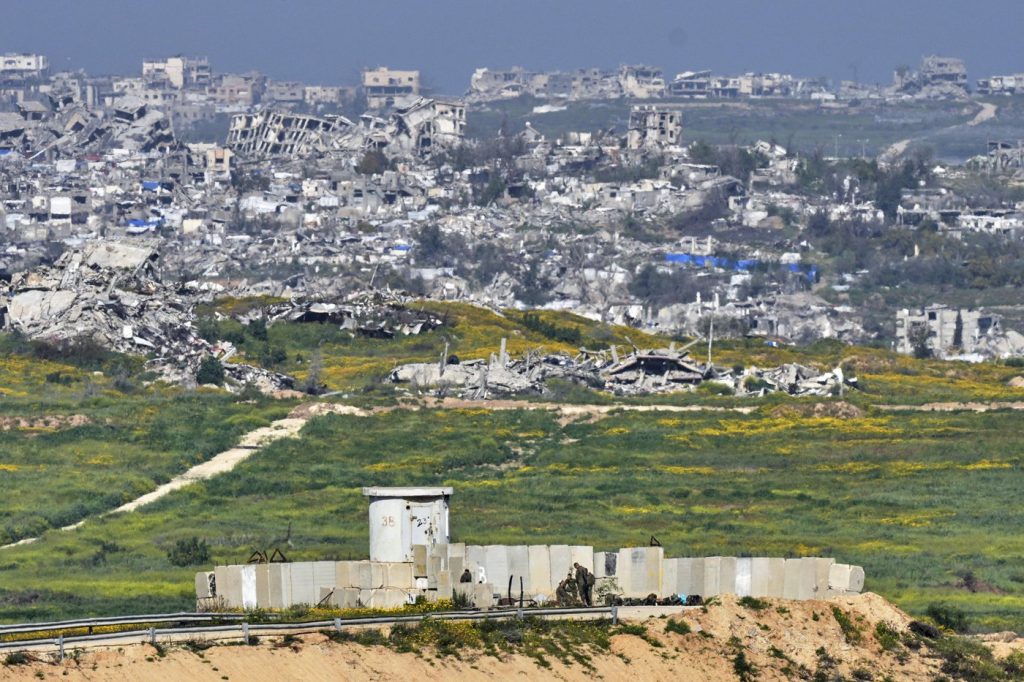The Israeli Defense Minister Israel Katz has stated that Israeli troops will remain in "security zones" within the Gaza Strip, Lebanon, and Syria indefinitely. This announcement follows Israel’s unilateral expansion of its territorial boundaries in response to the Hamas attack on October 7, 2023.
Israel argues that the control of these zones is essential for preventing further attacks. However, many experts assert that such actions align with the definition of military occupation as defined by international law. The acquisition of territory through force is broadly recognized as a violation of international legal standards, a point often highlighted by Western allies in discussions regarding Russia's invasion of Ukraine.
Israel has a history of capturing territory in conflicts with its Arab neighbors since its establishment in 1948. Historically, Israeli governments have justified retaining such lands for security reasons but maintained that they would return them in peace agreements, as demonstrated when Israel returned the Sinai Peninsula to Egypt in the Camp David Accords.
Instituted annexations by Israel include East Jerusalem and the Golan Heights, which were captured from Syria. Israel has maintained a prolonged occupation of the West Bank, home to approximately 3 million Palestinians, for over 50 years, constructing settlements that currently accommodate more than 500,000 Jewish settlers.
In 2005, Israel withdrew soldiers and settlers from Gaza. However, following Hamas’s ascension to power in 2007, Israel, in collaboration with Egypt, implemented a blockade on the territory. Recently, Katz reaffirmed that Israeli forces would persist in these "security zones" in Gaza, Syria, and Lebanon "in any temporary or permanent situation."
The "security zones" have taken shape following Israel's large-scale military offensive post-October 2023. Israel has established a significant buffer zone along the Gaza border, widening the area controlled since ceasing its ceasefire with Hamas last month. Analysts convey that Israel currently controls over 50% of Gaza, although Katz did not detail specific territorial references.
Israel had previously committed to withdrawing from Lebanon under a ceasefire with Hezbollah in November after extensive fighting. Despite this, Israeli forces continue to occupy five key positions along the border and carry out strikes against what they identify as militant targets.
In Syria, after rebel forces ousted President Bashar Assad in December, Israeli troops extended their reach from the Golan Heights into southern Syria, escalating tensions with local inhabitants.
Israel’s actions have drawn condemnation from Lebanon and Syria, who view the military moves as infringements upon their sovereignty and violations of international law. However, both nations lack the military strength necessary to effectively defend themselves against Israeli incursions. Hezbollah has cautioned against resuming hostilities unless Israel withdraws completely, but their military capabilities have been significantly diminished due to the ongoing conflict and the political shifts in Syria.
Palestinians aspire for an independent state encompassing East Jerusalem, the West Bank, and Gaza, territories seized by Israel in the 1967 conflict. A two-state resolution is regarded internationally as the viable solution to this crisis, though sincere negotiations have stalled for over 15 years.
Hamas has stated that it will only release the remaining 59 hostages held in Gaza, of whom 24 are believed to be alive, if there is a complete Israeli withdrawal and a lasting ceasefire. Israel’s decision to remain in Gaza complicates conversations regarding future ceasefire agreements.
The stance of the United States regarding Katz's statements remains unclarified; however, the Trump administration previously expressed unwavering support for Israel’s military operations in Gaza, including the decision to terminate the ceasefire and renew hostilities. During his administration, Donald Trump shifted U.S. policies to endorse Israeli territorial acquisitions, notably recognizing the annexation of the Golan Heights and relocating the U.S. Embassy to Jerusalem. Trump's controversial plans included a proposal for U.S. ownership of Gaza and the resettlement of Palestinians, a notion dismissed by the Palestinian people and much of the international community.
Prime Minister Benjamin Netanyahu has expressed intentions to realize this plan post-Hamas's defeat, advocating for the "voluntary emigration" of Palestinians from Gaza, a region that has become largely uninhabitable due to the ongoing military operations.












